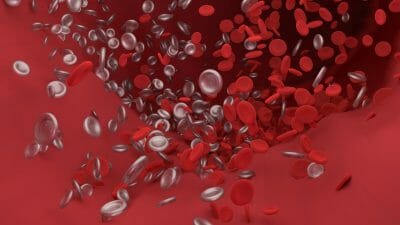Introduction
Atrial fibrillation (AF) is a common heart condition characterized by an irregular heartbeat. It can lead to a number of serious complications, including blood clots, which can cause stroke or other serious health issues. While there are a number of factors that can contribute to the development of blood clots in AF patients, two of the most significant are alcohol consumption and smoking. In this article, we will explore the effects of alcohol and smoking on the risk of blood clots in AF patients and what steps can be taken to reduce this risk.
Studies have shown that excessive alcohol consumption and smoking can increase the risk of blood clots. Alcohol can cause the blood to become thicker, making it more likely to form clots, and smoking can damage the blood vessels and cause them to become narrowed, which can also increase the risk of clots. Both of these factors can contribute to the development of atrial fibrillation and increase the risk of blood clots.
The effects of alcohol on atrial fibrillation patients
The effects of alcohol on atrial fibrillation patients refer to the impact that alcohol consumption has on individuals who have been diagnosed with atrial fibrillation, a condition characterized by an irregular heart rhythm.
How alcohol increases the risk of blood clots:
Atrial fibrillation patients are at an increased risk of blood clots forming in the heart, which can lead to a stroke or other serious complications. Alcohol consumption can further increase this risk by causing blood vessels to constrict, making it more difficult for blood to flow properly through the body. Additionally, alcohol can increase the risk of blood clots forming by causing the blood to become thicker and more likely to clot.
The recommended alcohol intake for atrial fibrillation patients:
In general, it is recommended that atrial fibrillation patients limit their alcohol intake as much as possible. This is because alcohol can exacerbate the symptoms of the condition and increase the risk of blood clots forming. However, if an atrial fibrillation patient does choose to drink alcohol, it is generally recommended that they limit their intake to one or two drinks per day. It is also important for patients to discuss their alcohol consumption with their healthcare provider to ensure that it is safe for them.
The effects of smoking on atrial fibrillation patients
The effects of smoking on atrial fibrillation patients refers to the negative impact that smoking has on individuals who have been diagnosed with atrial fibrillation, a type of abnormal heart rhythm.
How smoking increases the risk of blood clots:
This refers to the fact that smoking can cause the blood to become thicker and stickier, making it more likely to form clots. These clots can then travel to different parts of the body, such as the brain or lungs, and cause serious health problems such as stroke or pulmonary embolism.
The risks associated with smoking and atrial fibrillation:
This refers to the fact that smoking can worsen the symptoms of atrial fibrillation and increase the risk of complications such as heart failure and stroke. Additionally, smoking can also make it more difficult to control atrial fibrillation with medications, making it harder to manage the condition and maintain a healthy lifestyle. Overall, smoking can have a significant negative impact on the health and well-being of individuals with atrial fibrillation and should be avoided in order to reduce the risk of serious health complications.
Steps to reduce the risk of blood clots in AF patients
There are a number of steps that can be taken to reduce the risk of blood clots in AF patients. One of the most important is to avoid alcohol and smoking. If you are an AF patient, it is important to quit smoking and limit your alcohol consumption to low levels.
Another important step is to maintain a healthy lifestyle, including regular exercise and a healthy diet. This can help to reduce your risk of hypertension and other health issues that can increase the risk of blood clots.
Medications can also be used to reduce the risk of blood clots in AF patients. Anticoagulant medications, such as Xarelto (rivaroxaban) can be used. It is a blood thinner medication that is used to prevent blood clots from forming in the body. Xarelto works by inhibiting the activity of clotting factors in the blood, making it harder for clots to form. It is taken orally and does not require regular blood tests or monitoring like some other blood thinning medications. Possible side effects include bleeding, rash, and headaches. Additionally, antiplatelet medications, such as aspirin, can also be used to reduce the risk of blood clots. The generic Xarelto cost can vary depending on the dosage, quantity, and location of purchase. It is important to note that prices may also vary depending on whether the medication is purchased with or without insurance. It is always recommended to check with your healthcare provider or pharmacist for the most current pricing information.
